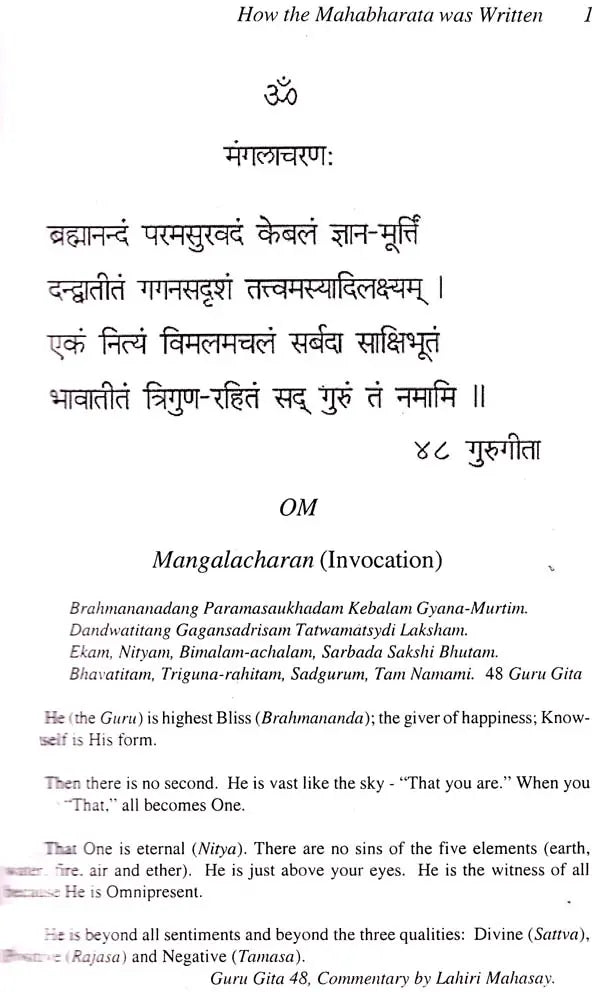The Mahabharata: Stories of the Great Epic with Spiritual Commentaries in the Light of Kriya Pranayam
The Mahabharata: Stories of the Great Epic with Spiritual Commentaries in the Light of Kriya Pranayam
Hardcover
Couldn't load pickup availability
Details :
Publisher : The Sanskrit Classics
Author : Swami Satyeswaranada
Language : English
Pages : 830 (Illustrated Throughout In B/W)
Cover : Hardcover
Dimension : 22 cm X 14.5 cm
Weight : 990 gm
Edition : 2006
ISBN : 9781877854439
About the book
"The Mahabharata: Stories of the Great Epic with Spiritual Commentaries" offers insights into ancient India's revered epic, exploring its spiritual significance through Kriya Pranayam. The book weaves together storytelling and spiritual commentary, providing a deeper understanding of the epic's timeless wisdom. It bridges ancient narratives with contemporary spiritual practices. A valuable resource for spiritual seekers.
From the jacket
Lord Krisna adises his disciple, Prince Arjuna
"You have right to work only, but never to expect result."
In other words, practice Kriya or make sadhana (meditation) abandoning the expectation of the results (niskam karma) to free yourself from the bondages (attachment) of the accrued results, good or bad, thereby, as a freed man of all results, you can achieve absolute freedom, eternal peace and tranquility (Sthirattva). This is the only way one can attain eternal liberation, Brahma-Niravan. Making yourself free from the accrued results by abandoning the expectation in the first place is the key to attain eternal liberation. There is no other way: Nanya pantha bidyate ayanaya. Remember, expectations constitute bondage, while abandoning desires delivers absolute freedom.
Krisna is showing the universal form (Biswarup) to Arjuna.
The lord said: "Behold the thousands of forms and various kinds of things; I am in the atoms of various colors." "You cannot see with the gross eyes. I am giving you an eye like the sky (ethereal divine eye). By that divine eye (Divya Chaksu) you can see the manifestation of the Lord (supreme self, in between the eyebrows through the practice of Yonimudra in the Kutastha) through the oneness of Yoga." The Bhabavad Gita 11:5, 8
Share






